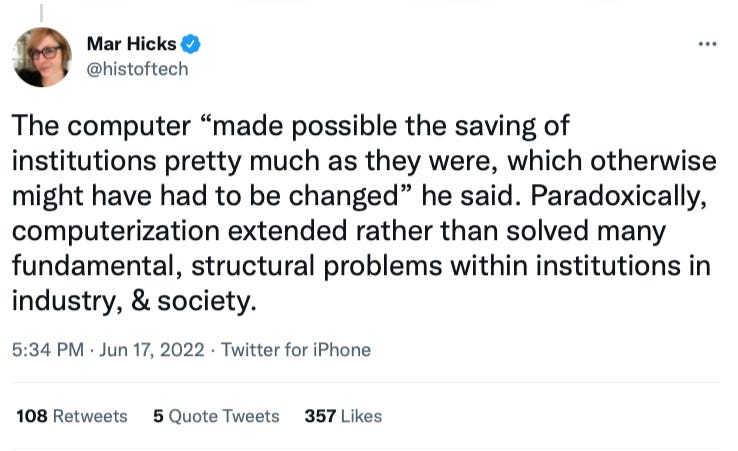Sometimes change gets stuck between two worlds, and all we end up with is old structures with new branding.
During a period of transition or paradigm shift, there is often an interim phase where we use new models to create a slightly better version of the old world before we embrace their potential for something qualitatively new. Sometimes we move past this interim phase, but sometimes the gravitational pull of long-established habits is such that real change is sacrificed and we get no further than putting old wine in new bottles.
There are many example of this around us today, which is unsurprising since it feels like so many aspects of the global system we took for granted are falling apart faster than alternatives are emerging, which is creating myriad opportunities for bad actors to exploit.
One example that captured the attention of our team this week was the Trainwreck: Woodstock ‘99 documentary about the catastrophic failure of a massive music festival. It was almost as if the organisers started with the question: what if we dis-honoured our own heritage to create a profit-driven simulacrum of a legendary hippy festival, but with angry nu metal bands? And what if instead of a duty of care, we just outsourced all the critical support functions to anybody who would pay us, so instead of communal free food kitchens we let people hawk $12 bottles of water during a heatwave?
In a similar vein, as Tim O’Reilly wrote recently, the metaverse is not a place. We don’t know what it is yet, if it will be more than just Second Life 2.0, but it will not be driven by scarcity of real estate, nor even a ‘place’ per se.
Crypto funds, exchanges, etc, might try to look like grown-up financial services or banks, but in fact (much like Woodstock ‘99) their T&Cs make clear they have zero duty of care, and nor are your monies ‘assets under management’ with the protections we have come to expect from investment funds or banks. At least one recent failed crypto fund claimed to have a diversified managed portfolio, but in fact YOLO’ed all their customers funds into a yield farm that collapsed. Today’s so-called crypto fintechs are mostly a new version of the unregulated shadow banks that contributed to the Great Depression in the 1930s and later crashes (ironically, this is why we had regulated banking in the first place).
In the field of organisational design and management, the rise of computing from the 1950’s onwards should have completely re-invented the way we work – and perhaps given us a chance to try the kind of networked structures that had been predicted by cybernetics – but instead it was wrapped around existing bureaucratic hierarchies because that is what incumbent managers wanted for themselves.
As the historian Mar Hicks discussed in a recent Twitter thread about AI:

And still today we use RPA to replace human data input instead of building smart automated data systems, and we use dumb “AI” bots to replace human workers, rather than use our technology to augment and support new ways of working.
HR and management are perhaps the OGs of putting old wine in new bottles. HR functions will adopt every new buzzword that comes along, from purpose to psychological safety, but don’t expect them to reform the underlying system that acts against purpose, safety or diversity, whilst they remain fundamentally wedded to a role of compliance and control. As Geoff Marlow writes in a plea for HR to become more strategic:
A new name is not enough
Some organisations have rebadged HR as People and Culture, Culture and Organisation or, following Google’s example, People Operations. 8
Where this name change reflects a genuine shift in focus, capability, and activity — not just a new badge stuck on the same old function — HR has the potential to become a Centre of Excellence for cultivating the capacity of the organisation to shape its future.
In this role, HR would support senior executives in making the mindset shift in their role from making decisions to creating conditions.
Sometimes, we need to really look to first principles to see the potential for change or new technologies to re-invent or re-imagine the way we work and the way we organise work. There will always be easy money to be made soothing nervous executives by giving them a palatable new bottle for their old wine, but the real gains are longer term, in embracing entirely new ways of getting things done or addressing major economic and societal challenges.
Even oenology embraces new technology and solutions from time to time.

